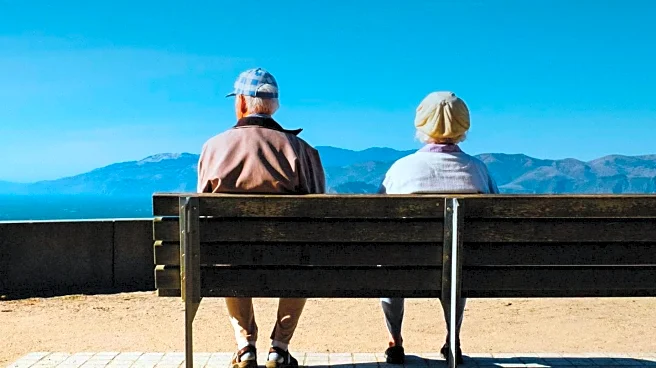What is the story about?
What's Happening?
A recent exploration into the daily habits of individuals over 70 reveals a focus on small, consistent practices that contribute to maintaining independence. These habits include gentle morning movements, cognitive engagement throughout the day, and social interactions before noon. The emphasis is on regular, manageable activities rather than intense fitness routines or miracle supplements. The approach is likened to tending a garden, where daily maintenance is key to preserving autonomy. The habits are designed to support physical health, mental sharpness, and social connection, which are crucial for independence in later years.
Why It's Important?
The significance of these habits lies in their ability to prevent dependence and promote self-sufficiency among the elderly. By focusing on daily routines that enhance physical and mental well-being, older adults can maintain their independence longer, reducing the need for external assistance. This approach not only supports individual autonomy but also has broader implications for healthcare systems and social services, potentially reducing the demand for elder care facilities and resources. The habits underscore the importance of proactive health management and social engagement in aging populations.
What's Next?
As these practices gain recognition, there may be increased interest in developing programs and resources that support elderly individuals in adopting similar habits. Healthcare providers and community organizations could play a role in promoting these routines, offering workshops or support groups focused on maintaining independence through daily activities. Additionally, there may be opportunities for research into the long-term benefits of these habits, potentially influencing public policy and elder care strategies.
Beyond the Headlines
The adoption of these habits highlights a cultural shift towards valuing independence and self-efficacy in aging populations. It challenges traditional views of aging as a period of decline, instead presenting it as a time for continued growth and autonomy. This perspective may influence societal attitudes towards the elderly, encouraging more inclusive and supportive environments that recognize the capabilities and contributions of older adults.














